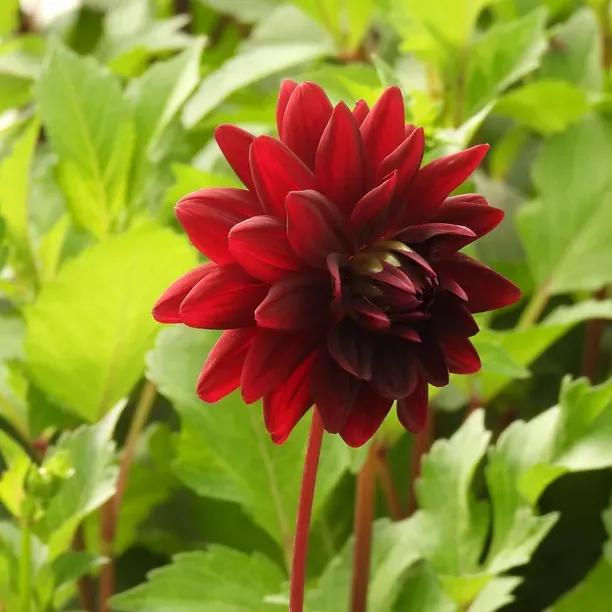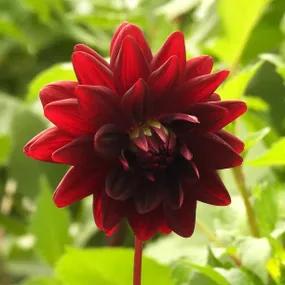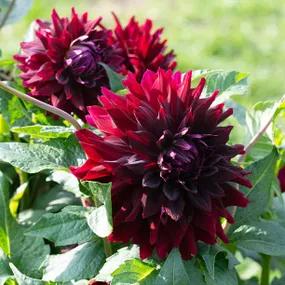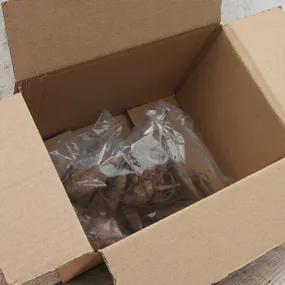Rip City Dahlia Tubers
Honest Delivery Prices- Colour: Deep red, black
- Foliage: Green
- Flower Size: 10-15cm
- Type: Semi-cactus Dahlia
- Cutting: Yes
- Height/Spread: 1.2m x 1m
- Flowering: July to November
- Planting Months: End February to July
Recommended extras
Description
Rip City: Semi-Cactus Dahlia Tubers
Dark and dramatic, Rip City is one of the best dahlias you can grow, and it is the flower that sparked the craze for near-black blooms. It is a stunning semi-cactus dahlia with velvety deep wine red flowers, getting darker towards an almost black heart. The 10-15cm double flowers have long, narrow, pointed petals that recurve for more half their length and appear ruffled. It's great to use as a cut flower, either on its own or with other intensely coloured dahlias for instant impact.
A strong grower, reaching 1.2m, with upright flowers held on long, strong stems above dark green foliage from mid-July until the first frosts.
Browse our other Cactus Dahlias or our full range of Dahlias here.
Features
- Colour: Deep red petals with black heart
- Foliage: Dark green divided leaves
- Flower Size: 10-15cm
- Type: Semi-cactus Dahlia type
- Cutting: Yes
- Height/Spread: 1.2m x 1m
- Flowering: July to November
- Outdoor Planting Months: March to July
Growing Rip City Dahlias
All dahlias do best in deep rich soil with good drainage in a sunny spot. If it is windy they will need staking. They are greedy, thirsty plants so will need watering in dry spells, and they will always flower that little bit better if there is a bit of soluble food in the watering can once every couple of weeks.
It is generally more convenient to put support stakes in at planting time, rather than leaving it until there is foliage in the way.
Planting Companions for Rip City
You need a bold hand to use Rip City at its best - try planting it in the middle of a sunny border in groups of at least five for a massed effect, surrounded by white flowers or grey foliage.
Planting Instructions
If you ignore seed, Dahlias can be planted at three stages: as tubers, rooted cuttings and pot-grown plants.
Tubers can be planted at any time from March onwards. The hole should be at least double the diameter of the tuber laid out on the ground. Incorporate about 25% well rotted compost and if drainage is in any way doubtful then add plenty of horticultural grit as well. Plant one tuber per hole, leaving 60-80 cms between plants (depending on final size) and make sure the tuber is covered with 10-12 cms (4-5") of soil. This is important as it will insulate the tuber against frosts in March-May as they will take a couple of months to show.
Rooted cuttings, which are available from early April onwards, will need to be potted up and kept in a sunny and frost free place until they are ready to be planted out in mid May. Their treatment then is the same as for tubers except they are planted level with rather than 10 cms below the surrounding soil level.
Pot grown plants are not delivered until June, and are then planted out immediately in the same way as an established rooted cutting.
The more you deadhead, the more flowers you'll get.
Did You Know?
Bred in the US and introduced in 1994, it has been grown in Monet's famous garden at Giverny, France.





